Farooki’s Chabial marks 25 years of bold and authentic storytelling
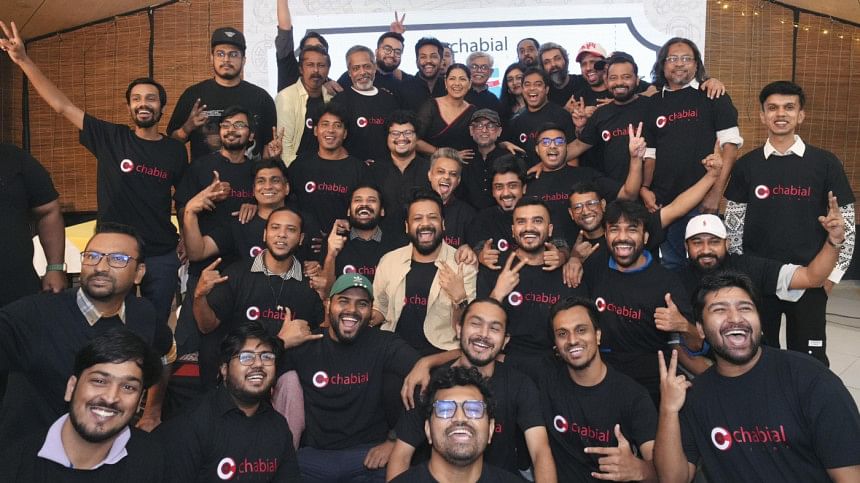
When "Doob: No Bed of Roses" was submitted as Bangladesh's Oscar contender in 2018, Variety reviewer Maggie Lee wrote a sentence that still resonates as a point of pride for Bangladeshi cinema. Reflecting on the film's themes of happiness, loneliness, and psychology, she stated, "Farooki has proven himself to be a singular voice in Bangladeshi cinema." This acknowledgement from an international publication played a big part in cementing Mostofa Sarwar Farooki's status as one of the country's most influential filmmakers.
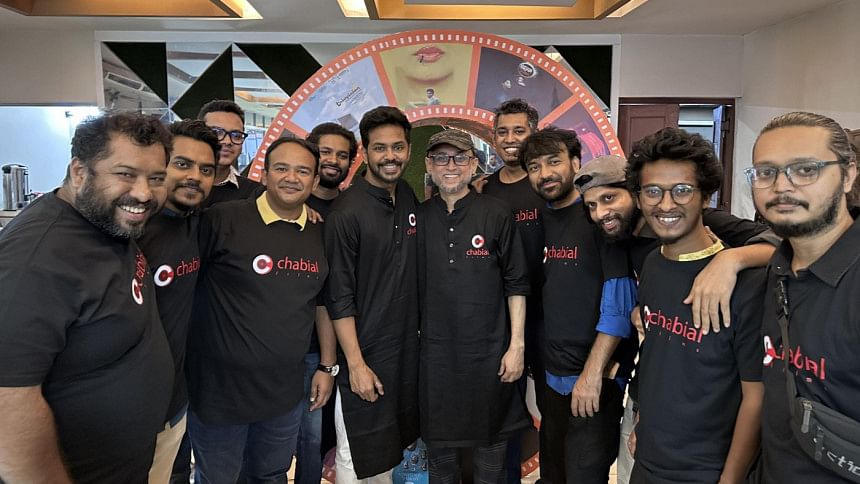
If those who write poems are called poets, why not call those who make films "Chabial"? This was likely the reason behind the name "Chabial" (The Film Hawkers), the production house founded by Farooki. When inquired about the name's origin, Farooki used the word boddhoy (perhaps in English) to reply. No further explanation was sought, but it seems he was referring to a time long ago—25 years, to be exact.
Reflecting on two and a half decades in the industry brought a flood of memories for Farooki, memories that he may have wished to share but couldn't all at once. The story of Chabial and Farooki's evolution—built slowly through mistakes and learning—is not one that can be told in a few hours.
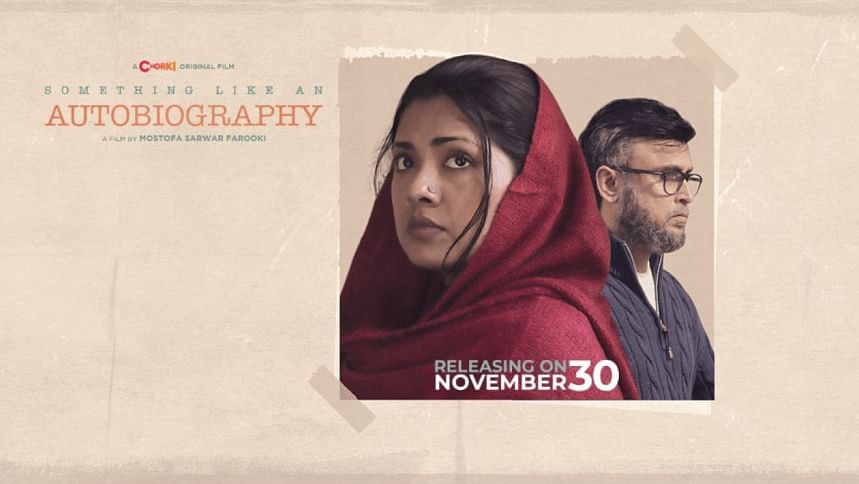
Founded in 1998, Chabial has since produced advertisements, television dramas, and films under its banner. Farooki's first production under Chabial was "Waiting Room", which no television channel wanted to buy at the time. However, the landscape has drastically changed over the years. Today, Farooki carries the title of internationally acclaimed filmmaker, recognised by global media.
The journey was never easy and Chabial's most recent film, "Something Like an Autobiography", gives a glimpse of the challenges. Farooki remarked, "At Chabial, we've always wanted to create films that capture the breadth of Bangladesh." This relentless pursuit of authenticity has defined both Chabial and Farooki. Throughout the journey, many have lent their support to him, most notably Farhad Mahmud, the managing director of the then Ekushey TV, Channel i's Managing Director Faridur Reza Sagar and Channel i's Founder Gias Uddin Al Mamun.
Sagar, reflecting on Chabial's 25th anniversary, recalled, "I first met Farooki during the making of 'Bachelor'. Since then, his evolution as a filmmaker is something the audience knows well. Farooki isn't just a filmmaker; he's a thinker who analyses every aspect of society, which is why we, as individuals, see ourselves reflected in his films."
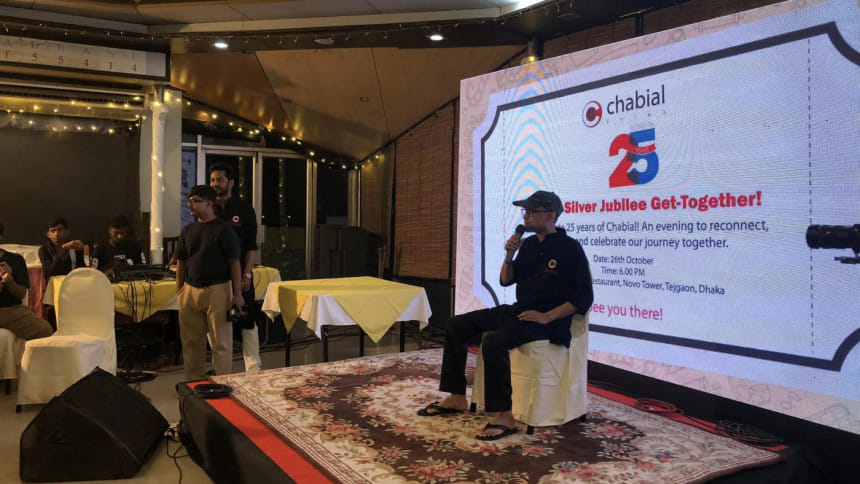
At the beginning of Chabial's journey, Channel i asked for a series from Farooki, but instead, he proposed the Chabial Festival. Reflecting on this, Gias Uddin Al Mamun said, "We believed in the creative potential of our youth, so we accepted the challenge, and it was a success."
Chabial has also left a lasting impact on the Bangladeshi media landscape by nurturing the next generation of filmmakers. Those who once served as assistant directors at Chabial are now successful directors in their own right, often referred to as the "Bhai Beradars". Notable among them are Redoan Rony, Ashutosh Sujan, Saraf Ahmed Jibon, Ashfaque Nipun, Iftekhar Ahmed Fahmi, Mohammad Mostafa Kamal Raz, and Adnan Al Rajeev.
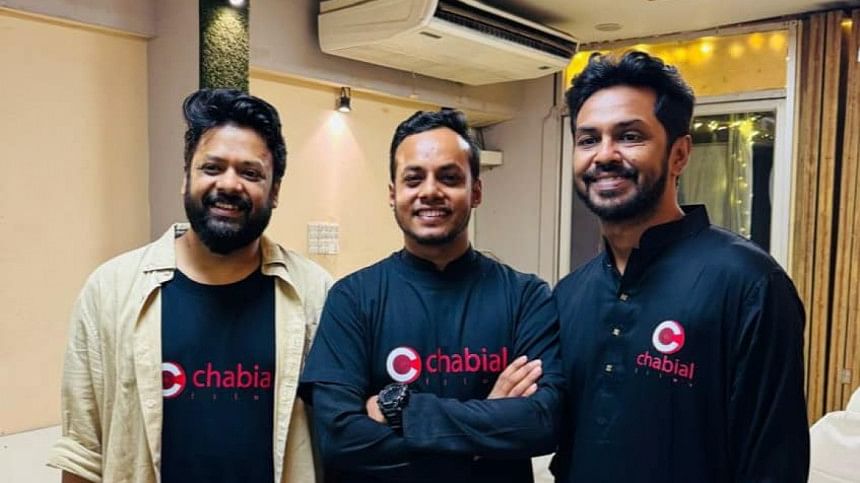
Ashfaque Nipun, reflecting on his journey, said, "Every time I see the credit 'Directed by Ashfaq Nipun', I remember that it was Chabial and Farooki who made me who I am today. Anything I can do now as a filmmaker is thanks to them."
Another "Bhai Beradar," Redoan Rony, CEO of the OTT platform Chorki, remarked, "Chabial was my cradle and for many like me. My feelings are impossible to summarise in a few words because it has been an emotional journey through and through. Chabial isn't just a production house; it's a cradle, an ashram."
Then again, such a long journey has not been without criticism. One of the more controversial aspects of Farooki's work has been his use of language in television dramas, where he employs colloquial Bangla. On this, Farooki commented, "I eventually realised that the one reason why acting often feels fake is due to the language. If I don't speak the way on screen like I naturally would, in reality, it will always seem artificial. So, I began using language that suited the characters. The audience accepted it."
Chabial's noteworthy productions include fiction and series such as "Ayesha", "Protyaborton", "Kaanamachhi", "Chorui Bhati", "69", "51 Borti", and "420". Its filmography also includes "Bachelor", "Television", "Mad_e in Bangladesh", "Third Person Singular Number", "Doob", and "Piprabidya".
As Chabial celebrates its 25th anniversary, Farooki reflected on the journey with gratitude, stating, "These 25 years have been about growing up while talking to the audience. My films have spoken not only with time but also with the audience, and through these conversations, we have grown and aged together. If the audience hadn't loved us, we would have disappeared after the first film. We are grateful for the support they've shown us along the way."

A significant celebratory event was officially held yesterday in Tejgaon, Dhaka, to mark Chabial's 25 years. Farooki attended, as did the "Bhai Beradars," along with their assistants, in a multi-generational gathering of filmmakers honouring the legacy and the journey. It was a night filled with joy, respect for the craft, and a deep sense of shared history.
As Chabial continues its journey, it remains a beacon for Bangladesh's film industry, symbolising not just one man's vision but a collective movement that has shaped the country's cinematic landscape for a quarter-century.

 For all latest news, follow The Daily Star's Google News channel.
For all latest news, follow The Daily Star's Google News channel. 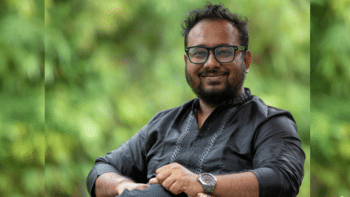





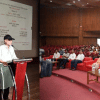




Comments